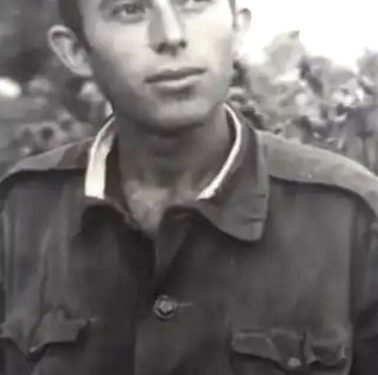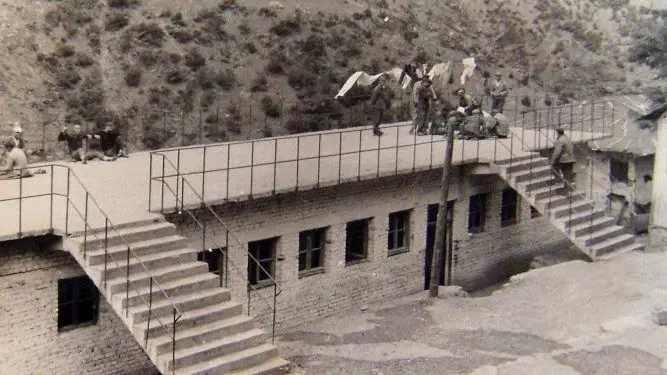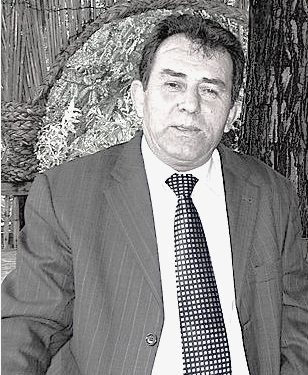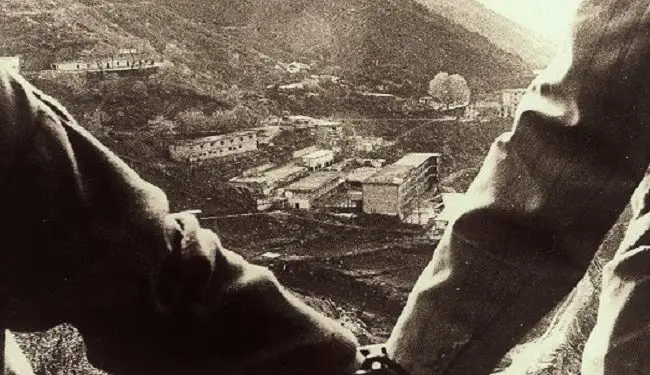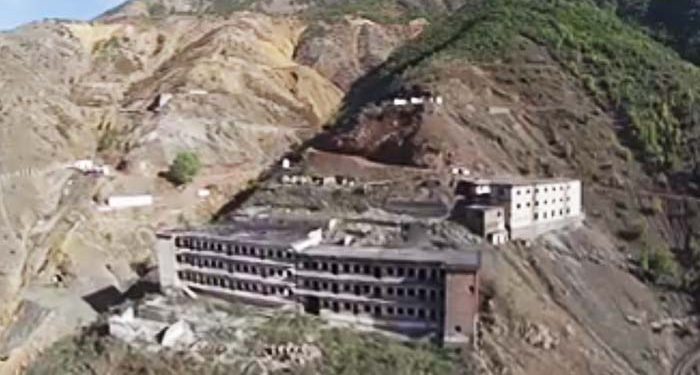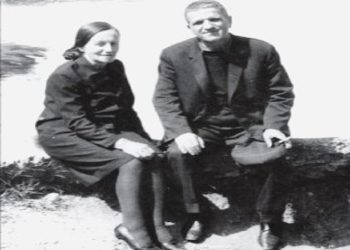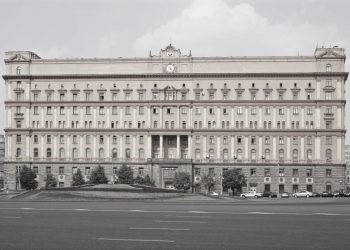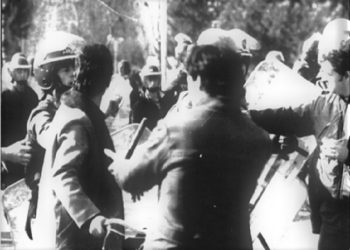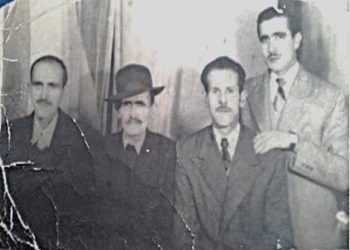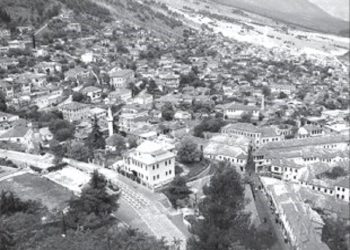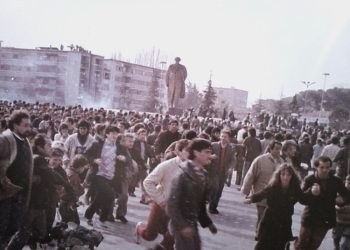By Shkëlqim ABAZI
Part thirty
S P A Ç
The Grave of the Living
Tirana, 2018
(My memories and those of others)
Memorie.al /Now in my old age, I feel obliged to tell my truth, just as I lived it. To speak of the modest men, who never boasted of their deeds and of others whose mouths the regime sealed, burying them in nameless pits? In no case do I presume to usurp the monopoly on truth or claim the laurels for an event where I was accidentally present, even though I desperately tried to help my friends, who tactfully and kindly deterred me: “Brother, open your eyes… don’t get involved… you only have two months and a little more left!” A worry that clung to me like an amulet, from the morning of May 21, 22, and 23, 1974, and even followed me in the months after, until I was released. Nevertheless, everything I saw and heard during those three days; I would not want to take to the grave.
Continued from the previous issue
“The case of a man from Dibër who had helped his own enemy had become a legend. When he heard that his enemy was trapped deep in the mine, he and others had set out to search for the lost one. When a comrade who knew about the feud advised him to go back, because ‘God forbid, he might pull a trick and you’ll get yourself killed in the tunnels or the crosscut,’ he had answered: ‘By God, my friend, it is not a highlander’s tradition to kill his enemy in the dark. And if it happens, he will wait for the sun to come out to let people know! No one wants to take that shame upon him!’ and he left without a second thought. An hour later, he returned in the company of his enemy.
I have nothing to say about the Deputy Minister [Feçor Shehu], who with this report ‘exceeded the plan,’ added decorations to his chest and star to his shoulders, but on the other hand, received the curse of Albanian mothers. In the not-so-distant future, nine years later, the comrades who awarded him the stars and decorations would also give him the final ‘decoration,’ a bullet to the back of his head and eternal oblivion, with the stigma ‘criminal,’ just as his fellow villager, the martyr Hajro Pashaj, had foretold.
We move to the section where the Special Trial is written about. In the trial that day, they indeed accused twelve apostles, but out of the twelve, three were unconscious and one was dead, the other eight were severely tortured, almost dead.
As for the accusations, they are correct, but only their side spoke; the other side was not heard, because their tongues were cut, their eyes were blinded, their ears were deafened. Thus, the prosecutor spoke himself, listened himself, while the entourage cheered the phantom man, who pronounced the phantom sentences, or what the phantoms, who were not present in that hall of phantoms, had written.
As for the requests for clemency, it is highly unlikely they are from the protagonists’ hands, for the reasons I mentioned above. I have heard the same from all the co-sufferers, who were part of that infamous trial. That means others must have written them in their name. Why? They know!
I do not question the authenticity of the minutes; I do not question the discussions in the Presidium of the People’s Assembly, because I fully believe in the unalienable sincerity of the decision-making actors.
What could you expect from a pack of hounds, blind tools of the butcher Enver, but barking! Because arrogance knows no nobility, and the communist system raised arrogance to a pedestal.
Finally, I must thank the staff of the newspaper……, who occasionally undertake initiatives and publish authentic documents, but I suggest they be more accurate to increase credibility.
Total Reorganization (From Hell to Beyond Hell), the Communization of May
That Sunday, we hoped they would let us rest, so that we could enjoy a quiet day, since they had taken our souls for months, except for May 1st, the workers’ holiday.
But even on that day, not only did they not let us rest our bones, but they lined us up in the blazing sun, from the morning onwards, and forced us to listen on the radio to the marathon speech of the “enlightened” leader of the PPSH (Party of Labour of Albania) and to enjoy, for four hours straight, the fanfare marches that accompanied the parade of the working “class” and the cooperative peasantry.
Naturally, May 1st is a beautiful day, perhaps one of the most beautiful of the year. The peak of spring, where nature unfolds generous landscapes, the greenery soothes the eyes, flowers bloom gracefully everywhere, and the earth swells under the caress of the rays, living things become active and reach the peak of dynamism, butterflies flutter in the light air, bees buzz over the perfume, and birds make love among the leaves, while nightingales and thrushes are intoxicated by the spring breeze and sing madly under the glow of fireflies that speckle the night.
Moreover, on that day, people seem to don a veil of romanticism and become more humane, more poetic, more sincere, better, purer, wiser, more beautiful, more apolitical, more… the whole world passes into apotheosis, even though the communists gave it a different coloring from what God had bestowed: They celebrated May 1st with pomp, May 5th with fanfares.
The difference was felt a month before. Proletarian flags waved along the roads, and banners with the quotes of the Number One [Enver Hoxha]; on the hills and mountains, gigantic posters with the bearded portraits of the Marxist-Leninists and the finely curated figures of the members of the Political Bureau of the Central Committee of the PPSH cast shadows. Everywhere, bombastic slogans dominated, with capital letters, eroding the surface and spoiling the relief of the mountain slopes.
To give it an impressive shade, especially to convince the world that the revolution continues and would surely triumph across the globe, they organized pompous celebrations. They adorned the podiums with flowers and ornaments, to fill them on the day of the holiday with all sorts of known and unknown faces, from the country and the world.
From the dawn, they lined up the combat formations, composed of kindergarten children with rag toys, pioneers with black rifles, students with cotton blouses, soldiers with wooden rifles, activists with scarves around their necks, workers with overalls, textile workers with spools of thread and rolls of fabric, cooperative members with boots and hoes, cow milkers with cans and buckets, intellectuals with a certain look, veterans of war and work, with a kilogram of tin on their chests [medals], as well as guests from sister and similar parties—when they had such—and when they dried up, groups of Marxist-Leninists, from five continents and of all shades.
The center of the entourage was reserved for the members of the Political Bureau, and in the center of the center, the Great One. At exactly ten o’clock, the parade began before the magnificent tribune, where masses of miserable people with smiling faces and military vehicles with modern armaments from the First World War dragged themselves.
“The case of a man from Dibër who had helped his own enemy had become a legend. When he heard that his enemy was trapped deep in the mine, he and others had set out to search for the lost one. When a comrade who knew about the feud advised him to go back, because ‘God forbid, he might pull a trick and you’ll get yourself killed in the tunnels or the crosscut,’ he had answered: ‘By God, my friend, it is not a highlander’s tradition to kill his enemy in the dark. And if it happens, he will wait for the sun to come out to let people know! No one wants to take that shame upon him!’ and he left without a second thought. An hour later, he returned in the company of his enemy.
I have nothing to say about the Deputy Minister [Feçor Shehu], who with this report ‘exceeded the plan,’ added decorations to his chest and star to his shoulders, but on the other hand, received the curse of Albanian mothers. In the not-so-distant future, nine years later, the comrades who awarded him the stars and decorations would also give him the final ‘decoration,’ a bullet to the back of his head and eternal oblivion, with the stigma ‘criminal,’ just as his fellow villager, the martyr Hajro Pashaj, had foretold.
We move to the section where the Special Trial is written about. In the trial that day, they indeed accused twelve apostles, but out of the twelve, three were unconscious and one was dead, the other eight were severely tortured, almost dead.
As for the accusations, they are correct, but only their side spoke; the other side was not heard, because their tongues were cut, their eyes were blinded, their ears were deafened. Thus, the prosecutor spoke himself, listened himself, while the entourage cheered the phantom man, who pronounced the phantom sentences, or what the phantoms, who were not present in that hall of phantoms, had written.
As for the requests for clemency, it is highly unlikely they are from the protagonists’ hands, for the reasons I mentioned above. I have heard the same from all the co-sufferers, who were part of that infamous trial. That means others must have written them in their name. Why? They know!
I do not question the authenticity of the minutes; I do not question the discussions in the Presidium of the People’s Assembly, because I fully believe in the unalienable sincerity of the decision-making actors.
What could you expect from a pack of hounds, blind tools of the butcher Enver, but barking! Because arrogance knows no nobility, and the communist system raised arrogance to a pedestal.
Finally, I must thank the staff of the newspaper………, who occasionally undertake initiatives and publish authentic documents, but I suggest they be more accurate to increase credibility.
Total Reorganization (From Hell to Beyond Hell), the Communization of May
By supreme order, for weeks, if not months, an endless army of pioneers, students, intellectuals, workers, cooperative members, soldiers, even infants from nurseries and kindergartens, were detached from their daily duties; that is, from all strata of socialist society, and so that the impression would be stamped on the memory of generations, money flowed like a river; they engaged dozens of specialists of various professions, from nursery educators, ‘Meritorious and People’s Teachers,’ coaches and athletes, writers of socialist realism, professors of Marxism, historical falsifiers, ethnographers copying costumes produced at the ‘Stalin’ Textile Combine, failed painters of proletarian frescoes, grimacing clowns who mocked the social-imperialists, choreographers of partisan dances with the severed heads of Ballists, theoreticians of the Party school, mass movement experts, up to the member of the Political Bureau of the Central Committee of the PPSH, who supervised the others.
The communist leaders connected everything with appearance; megalomania became a system. The regime of dwarves valued the facade without looking at the content. Especially on marked days, they aimed to encounter happy faces, even though the people, drowned in an ocean of troubles, should have been weeping.
On that day, the executioners pretended to be kind fathers; their faces glowed when they saw children clapping their hands for the Mother Party and Uncle Enver and parading with trinkets and portraits of leaders, cheering them while ignoring their biological parents, or carefree youths who rejoiced in the bright future, which the Party supposedly secured for them; students who smiled, danced, and played, intoxicated by the future toward which the Leader’s wisdom led them; self-sacrificing soldiers who felt proud and privileged to sacrifice themselves at the first opportunity that arose, in the name of the Party and Comrade Enver; tireless vanguard workers who supposedly worked for the next century and toiled relentlessly, on and off schedule, with empty stomachs; Stakhanovite cooperative members who supposedly achieved prospective plans even before they were approved by the Government and achieved yields that exceeded biological capacities several times over, producing bread locally, and even striving to assist people who were ‘dying’ of hunger in the East and West, even though they themselves ate yellow corn bread and drank a bottle of buttermilk; exhausted intellectuals who had to praise collective happiness, absolutely hymn the bright proletarian future, exalt the socialist well-being, which, under the far-sighted leadership of the Party and Comrade Enver, was reaching the peaks, while simultaneously unmasking the decadence and the reactionary capitalist-revisionist theory and practice, which supposedly aimed to sow defeatism, and at the same time propagandize the socialist paradise, which, in the spirit of the valuable lessons of Marxist-Leninist theoreticians, Albania was preparing to enjoy, even though terror and censorship shuddered within them.
Everyone was lying to themselves, and lying to others, so much so that self-deception became a national sport, and the entire populace wallowed in the collective mire of deception. Amidst the sea of lies, Albanians dreamed of paradise and were lulled in the cradle of expected well-being, which was nowhere to be seen. Whoever dared to rise above the foam of lies or peer beyond the fluid mirage would end up in total disillusionment and would either choose self-annihilation or would be swallowed by the censors and, again, annihilated to terrorize the masses. In both cases, elimination was certain.
Only a system built upon a false premise can vegetate amidst the mire of lies and convey the deceptive illusion to infinity.
“Thank God, rest!”
On the Sunday three weeks after May 1st, they didn’t send us to work. Praise God, they let us rest!
“Get up, man, we dodged it today!” Zakja nudged my feet.
That May, I was about eight months into Spaç. I started in the first sector; before two months were up, they transferred me to the third, meaning they promoted me in rank without respecting the hierarchical order. In the third sector, I didn’t feel too bad, except for the underground work, which was the same – that is, loading and unloading copper ore, pushing and pushing rusty-wheeled wagons, filling and emptying the carbide lamp, inhaling and exhaling jackhammer dust and trinitrotoluene gas, putting on and taking off the compressed cardboard cap, splitting and cutting beech bodies for armatures, rolling around in the platforms, hiding and squeezing my head in the ventilation pipes, turning and hauling full and empty wagons, entering and exiting the crosscuts, climbing up and down vertical shafts; in this sector, one more chore was added: the inclined plane, where you had to push the loaded wagons down with the winch and haul the empty ones up to refill them at the upper level.
The formation also differed; the rock was quite fractured, consequently accidents were more frequent. But you felt slightly more protected from physical punishments, and the possibility of escaping the vigilance of the police and foremen was higher, because they were reluctant to climb the hill to the top, so either they didn’t come at all, or even when they took the trouble to climb, they didn’t dare to go deep, fearing they might lose their lives, but also for an additional reason that they didn’t mention, because they felt ashamed or lost their job; it had happened that some crazy convict would stick a crowbar into a local policeman when he encountered him in the tunnel, but without leaving marks.
Their presence increased in cases of accidents, from the relentless collapses, or when the command tightened the belts for failing to meet the plan; at that time, repressive measures increased, and woe to whoever fell into their hands, as they would be punished for themselves and for others, for the “fault” of the day and the “faults” of the week or month, that the “kind-hearted” police didn’t want to punish. The unlucky one who was targeted was treated so brutally that he would record it in his memory until he confessed it to the grave.
In those holes, almost homogeneous convicts toiled – Ballists, Zogists, Independents, and very few communists – with a compact physical-psychological composition, where stable and proven young people prevailed. In the rugged terrain with unsafe holes and that homogeneous group, I was completing six months. I got to know almost everyone, and even though I was somewhat withdrawn, I enjoyed the respect of almost everyone. Every day, I went to work with my pockets full of papers, with French and Italian words, and I immersed myself in them whenever I had the chance to take them out.
The convicted foreman Rroku, about fifty years old, from Malësia e Madhe (Great Highlands), was serious and benevolent; naturally, I don’t believe they left him there just for these qualities, but when he saw me with papers, he pretended not to see, lowered his head, and went elsewhere. The free employee Ndreca, whose last name I couldn’t learn, like all Mirdita men, after the shift change of the preceding team, would come and look at the pile of ore, estimate the number of wagons we had to take out, mark some soot ‘x’s with the wick of the lamp on the rock where the miner had to drill, instruct how many sets of timbers we needed to set up, and leave. At first, he would return for control about an hour before we handed over the shift, but later, his trust in our abilities seemed to increase, and he didn’t return anymore.
Initially, he was silent, exchanging commonplace words related to the work and saying nothing further; later, he added some greetings like: “How are you doing, good day, good evening”; after a month, he started asking about our health and news from our families; even later, he exchanged some dry jokes; then we would engage in conversation like old friends, and he even reached the point of exchanging tobacco or sports banter, since he was a mad fan of ‘Vllaznia.’
Solidarity of slaves
Solidarity of Slaves
Ndreca’s lamp went out due to the strong draft in a crosscut; his lighter wouldn’t spark, or perhaps the flint was wet, so in the dark, he shouted loudly:
“Hey, I’m stuck in the dark!”
I went toward the shouts without knowing who the unfortunate person was; in such cases, everyone was helped, freeman, prisoner, even police or foreman. I had heard dozens of stories on this subject. The case of a man from Dibër who had helped his own enemy had become a legend. When he heard that his enemy was trapped deep in the mine, the Dibër man and others had set out to search for the lost one.
When a comrade who knew about the feud advised him to go back, because “God forbid, he might pull a trick and you’ll get yourself killed in the tunnels or the crosscut,” he had answered: “By God, my friend, it is not a highlander’s tradition to kill his enemy in the dark. And if it happens, he will wait for the sun to come out to let people know! No one wants to take that shame upon him!” and he left without a second thought. An hour later, he returned in the company of his enemy.
“You saved my life!” the latter tells him.
“I brought you out of the darkness!” the Dibër man replied.
“And now?”
“If I were to kill you, I wouldn’t do it in the dark!” the other said.
“Now we are in the light, what are you waiting for?” the first one prompted him.
“I swear I won’t do this madness, not after we have a common enemy!” and they shook hands.
Following the voice, I found Ndreca in the dark.
“May your honour be raised!” he thanked me anxiously.
“No problem!” I replied!
“You brought me out of the darkness!”
“Anyone would do it; today it was me, tomorrow it might be you, and you will surely do it!”
“Yes, by God’s honour!” he cut off the conversation.
“We are in a fight with the darkness every day!” I continued.
“Yes, by Christ…, with ‘The Darkness’ and with ‘The Hell’!” he added with a laugh, strongly emphasizing the words.
“Do you believe in hell and paradise?” I teased him for fun.
“By God’s ideal, we are simple serfs! But do you believe?” he suddenly turned the question to me.
“Of course, this belief keeps me alive!” I added seriously.
“We also believe strongly, in Jes… the enlightened teachings of the Party!”
“That is your right!” We parted, each on our own way.
After a few months, a massive block of several tons broke off at the working face where I was. God willed it, at the moment it happened, Hajrulla Dorezi and I were returning with the empty wagon, while Qemal had stopped at the blacksmith’s to get the tempered hammer.
A roar shook the mountain several meters away from the face; the smoke rose in a cloud, covering the entire gallery entrance.
“Allah Allah, earthquake!” Hajrulla exclaimed and stopped, terrified.
“Upon the heads of the communists, I hope!” I wished.
“Amen!” Hajrulla echoed me.
“I can’t find the lighter, the devil take it!” Hajrulla swore when the pressure put out our lamps.
“Don’t move until I find mine!”
I pulled out the lighter by guess and lit the lamps, but the smoke prevented us from seeing clearly; nonetheless, we spotted an opaque figure stumbling amidst the billowing dust.
I asked him, approaching:
“Are you alright?”
“May Holy Mary will it, I escaped!” a northern accent replied.
I assumed it was Rroku, who prayed to Christ and Holy Mary every minute.
“Jesus protected me!” When he repeated it, we didn’t pay attention, but rushed to help him.
When I saw clearly through the smoke and saw no one else, to be sure, I asked if anyone was left under the mass of rocks:
“Who are you with, Rrok?”
“With God, man!”
“Are you hurt?” Hajrulla jumped in.
“No, praised be Jes… the Party!”
We understood. Ndreca was covered in dust from head to toe, but God had destined him for a long life; the collapse happened just as he had ducked his head under the armature helmet. We pulled him out into a crosscut and laid him flat on some rotten logs.
“What a disaster this was, the mountain almost collapsed!” He was shaking as if he had caught a terrible fever.
“Thank goodness, God protected you!” Hajrulla wished.
“But by Saint Ni… the ideal, my eyes have not seen a collapse like this for so many years!” He made the sign of the cross with his trembling fingers.
As he struggled to keep his tongue in check, he could not control the gesture learned as a child from his grandmother, or the parish priest.
“You must sacrifice a black ram, Mr. Ndreca!” I joked.
“Yes, by God’s honour!”
“You know what, sir; make those ‘x’s on the working face proper crosses!” Hajrulla added a dose of humor.
“Hey, man, do you want to make me like yourselves?!” Ndreca pretended to be indignant, but the softness didn’t suit the indignation.
“Why, man, were we born enemies? No, but they put us here to frighten you and the people with our bogeyman!” Hajrulla said to him.
Ndreca lost the colour in his face.
“E-hi-i, these things are too deep, man! I’m leaving now!”
On our working face, we saw no more ‘x’s from that day on; even Qemal Demiri deliberately bypassed them and the crosses were clearly visible, but Ndreca never asked for an explanation for the intentional avoidance of the marks. / Memorie.al




